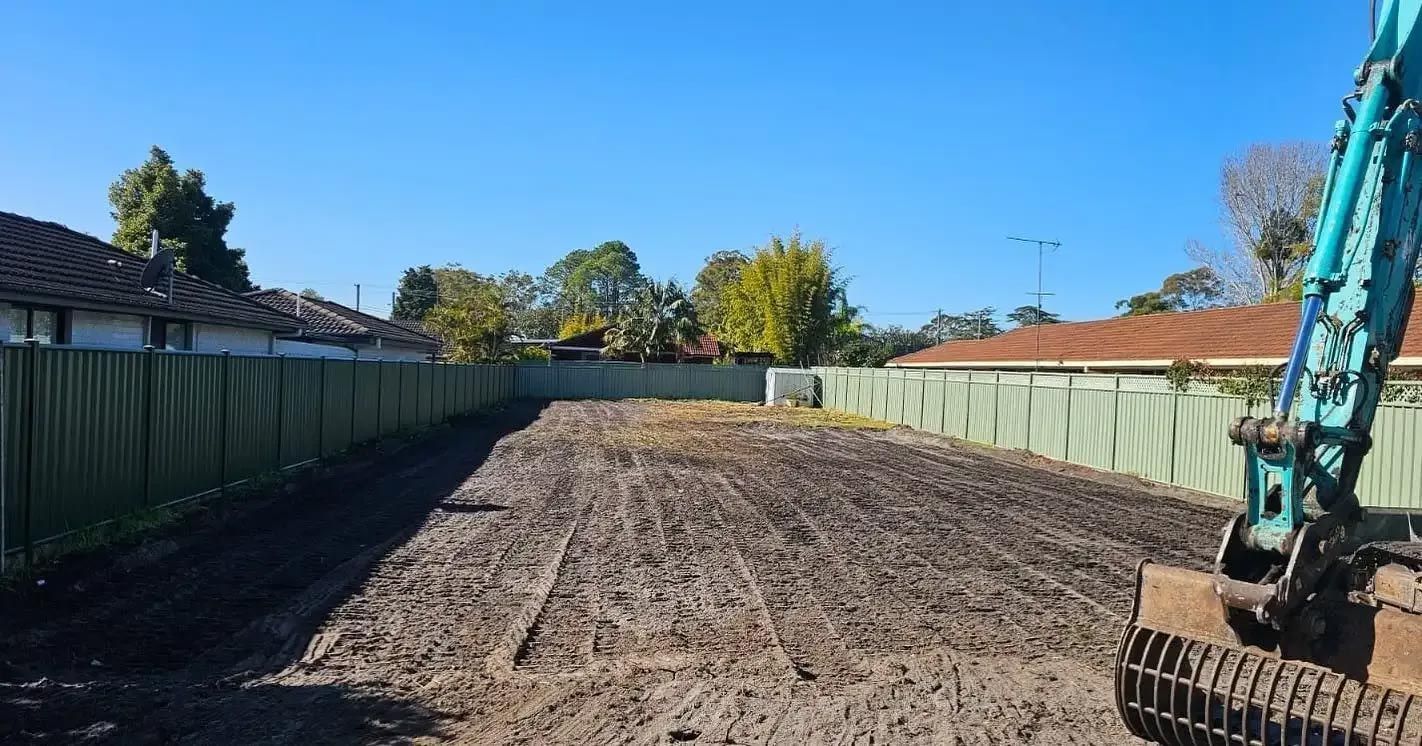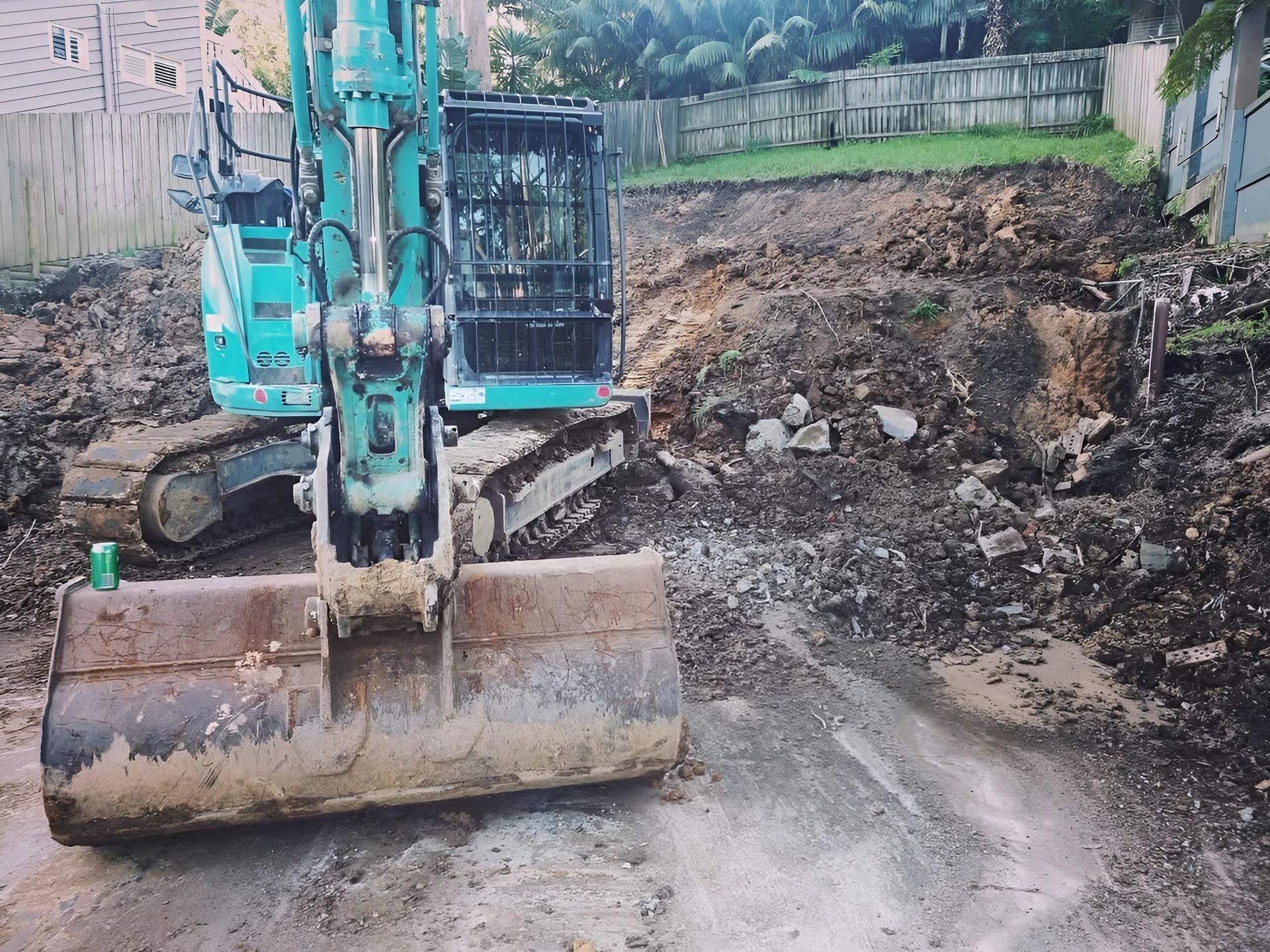The Importance Of Site Preparation Before Demolition
Demolition is a complex task that requires more than machinery and manpower. Before any structure can be safely removed, the site must be properly prepared. This step involves more than clearing the area—it includes assessing potential hazards, managing services like power and gas, obtaining the right permits, and planning access to equipment. It also ensures the work complies with safety and environmental regulations.
Site preparation is not just a technical requirement; it’s a practical necessity that directly affects the safety, cost, and timing of a project. When done properly, it creates the conditions for a controlled and efficient demolition. For property and business owners, understanding the importance of this stage can help avoid disruptions and lead to a smoother, more successful outcome.
Understanding the Role of Site Preparation in Safe Demolition
A comprehensive understanding of the site is required before a structure is removed. Demolition is high-risk by nature, and site preparation ensures that every element—from structural concerns to environmental impact—is properly addressed.
A well-prepared site leads to
- Safer working conditions for demolition crews and surrounding residents
- Better control over debris, dust, and structural collapse
- Fewer unexpected delays due to hidden obstacles
- Easier compliance with local council requirements
Preparation is more than a formality—it’s a safeguard for people, property, and the environment.
How Site Surveys Identify Hazards Before Demolition Begins
One of the first and most important steps in demolition planning is conducting a comprehensive site survey. This helps uncover any hidden hazards or restrictions that could disrupt the project or pose risks during the teardown.
A detailed survey might reveal:
- Hazardous materials need licensed removal
- Structural vulnerabilities such as unstable walls or footings
- Underground utilities, including gas, water, and sewer lines
- Proximity issues with neighbouring buildings or protected areas
Identifying these issues early means they can be managed proactively, preventing accidents and ensuring the demolition can proceed as planned.
The Importance of Permits & Legal Compliance for Demolition Jobs
Strict council approvals, environmental laws, and planning regulations govern demolition on the Central Coast. Without the correct permits and documentation, your project can be halted before it begins—or worse, result in fines or legal action.
Key legal requirements to address include:
- Development Application (DA) or Complying Development Certificate (CDC)
- Notification to neighbours and local councils
- Hazardous waste clearance certificates
- Waste & sediment control plans approved by local authorities
Having a demolition contractor who understands and handles these legalities ensures a smoother and fully compliant process.
Clearing the Site: Waste, Vegetation & Debris Removal Explained
Clearing the site is an essential task that lays the foundation for safe demolition. This phase involves removing any obstacles, debris, or vegetation that could interfere with machinery or crew safety.
Typical clearing tasks include:
- Stripping interiors of doors, windows, fixtures & cabinetry
- Removing vegetation, trees, stumps & overgrowth
- Clearing rubbish, debris, and hazardous waste
- Establishing access points for demolition equipment
Waste is not only cleared but also managed responsibly, with recyclable materials carefully separated to minimise the amount that ends up in landfills.
Utility Disconnections & Service Mapping: Preventing Costly Mistakes
Imagine striking a live gas line or cutting through a live power cable during demolition—this isn’t just costly, it’s dangerous. Service disconnection and mapping are critical for worker safety and operational control.
Tasks involved in this stage:
- Shutting off electricity, gas & water services
- Contacting utility providers for official disconnection certificates
- Mapping out telecommunications & NBN connections
- Capping off or rerouting stormwater & sewer systems
Failing to perform these checks could result in serious injury, major damage, and extensive repair costs. This is why professionals perform thorough service checks prior to starting any demolition work.
Protecting Surrounding Properties with Strategic Planning
In densely built areas of the Central Coast, many properties share walls or sit within metres of each other. Strategic protection measures are necessary to avoid damaging neighbouring structures or disrupting nearby businesses.
Site preparation for protection often includes:
- Installing temporary fencing, signage, and exclusion zones
- Erecting barriers or netting to contain falling debris
- Setting up dust suppression systems (e.g., water spraying)
- Vibration monitoring to detect and minimise movement
These precautions reduce liability, help maintain community goodwill, and avoid disputes during the demolition.
Environmental Considerations & Sustainable Site Prep Practices
Demolition doesn't have to mean destruction without care. Site preparation presents opportunities to be environmentally responsible, especially in areas like the Central Coast, where sustainability is increasingly expected.
Environmentally conscious site prep may involve:
- Dust and noise control to limit pollution
- Hazardous waste removal
- Salvaging building materials such as bricks, steel & timber
- Sorting demolition waste for recycling or repurposing
Sustainable practices are integrated throughout every stage of the demolition process, aligning with environmental standards and respecting the expectations of the surrounding community.
Why Choose Professionals for Pre-Demolition Site Preparation?
With so many moving parts involved in demolition, working with a team that takes site preparation seriously can make all the difference. A well-prepared site reduces risks, avoids costly delays, and lays the groundwork for a smooth, efficient demolition process.
Professional demolition teams stand out by offering:
- Thorough understanding of local regulations and site conditions
- Detailed site surveys, clearance procedures, and utility disconnections
- Commitment to environmental responsibility and minimal disruption to surrounding areas
- Clear communication and transparent planning with full documentation
From coordinating with councils and utility companies to managing community notifications and waste disposal, professional site preparation ensures your demolition project starts on a safe, compliant, and stress-free footing.
Start Your Demolition Project on the Central Coast the Right Way
At Complete Demolition, we understand that demolition is more than knocking down walls—it’s about setting the right groundwork to make your future project a success. Our team is fully licensed and insured, committed to delivering professional services with safety and efficiency at the forefront. We understand the unique challenges of demolition on the Central Coast and tailor our approach to meet your specific needs.
Ready to begin your demolition project with confidence? Get in touch with our team today to learn more about our services. Let us help you lay the groundwork for your next construction endeavour.







